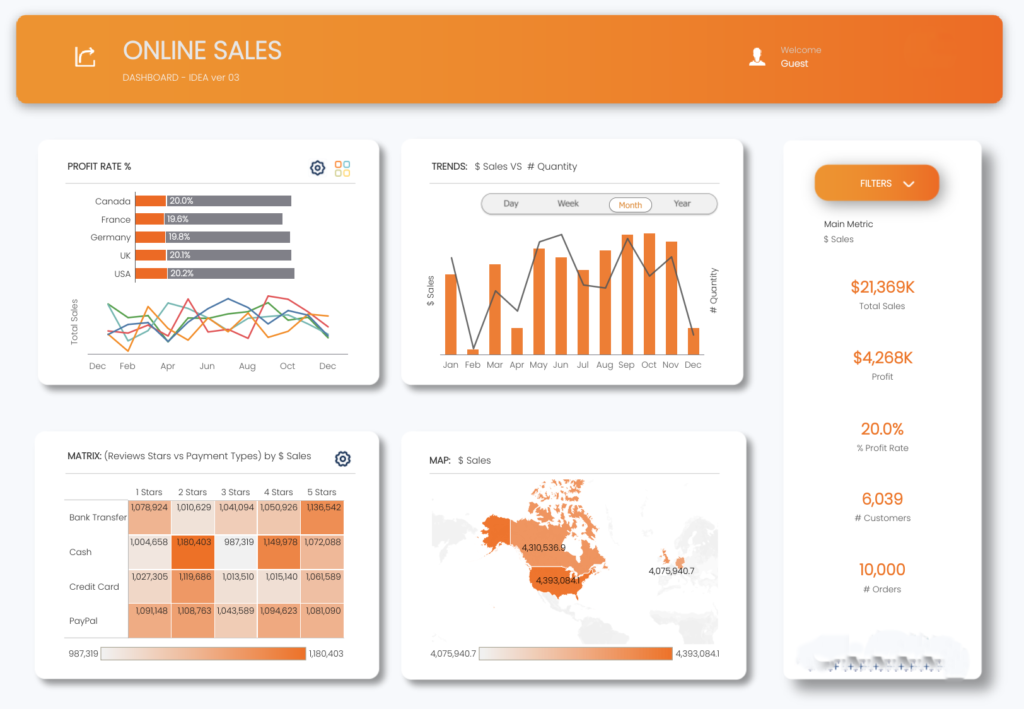Description:
The project involves analysing trial data from an E-commerce platform to gain insights into user behaviour, product performance, and overall platform effectiveness. The dataset comprises information such as user demographics, browsing history, product details, trial durations, conversion rates, and feedback.
Challenges:
- Data Quality: Ensuring data accuracy, completeness, and consistency, especially when dealing with large volumes of data.
- Complexity: E-commerce data can be complex due to diverse product categories, varying user preferences, and dynamic market trends.
- Privacy and Compliance: Adhering to data privacy regulations (like GDPR) while handling sensitive user information.
- Data Integration: Integrating data from multiple sources (website, app, CRM systems) to provide a comprehensive analysis.
- Seasonality: Accounting for seasonal fluctuations and trends that may affect user behaviour and sales.
- Real-time Analysis: Providing timely insights for decision-making, especially during promotional campaigns or peak sales periods.
Solutions:
- Advanced Analytics: Employing statistical analysis, machine learning algorithms, and predictive modeling to uncover patterns and trends in the data.
- Data Cleaning and Pre-processing: Implementing data cleaning techniques to address missing values, outliers, and inconsistencies.
- Visualization: Utilizing data visualization tools (like Tableau or Power BI) to create intuitive dashboards and reports for easier interpretation of results.
- Segmentation: Segmenting users based on various attributes (age, location, purchase history) to tailor marketing strategies and personalize user experiences.
- A/B Testing: Conducting A/B tests to evaluate the impact of different variables (such as pricing, product placement) on user engagement and conversion rates.
- Collaboration: Collaborating with cross-functional teams (marketing, sales, product development) to align data analysis efforts with business objectives.
Benefits:
- Improved User Experience: By understanding user preferences and behavior, the E-commerce platform can enhance the overall user experience through personalized recommendations and targeted marketing campaigns.
- Optimized Product Offerings: Identifying top-performing products and trends allows for better inventory management and strategic product planning.
- Increased Conversions: Optimizing pricing strategies, promotional activities, and website layout based on data insights can lead to higher conversion rates and revenue generation.
- Cost Efficiency: Targeted marketing efforts and optimized resource allocation result in cost savings and improved return on investment (ROI).
- Competitive Advantage: Data-driven decision-making provides a competitive edge by enabling faster adaptation to market changes and customer preferences.
By addressing these challenges and leveraging data analysis techniques, the E-commerce platform can extract actionable insights from trial data, leading to improved business outcomes and enhanced customer satisfaction.

